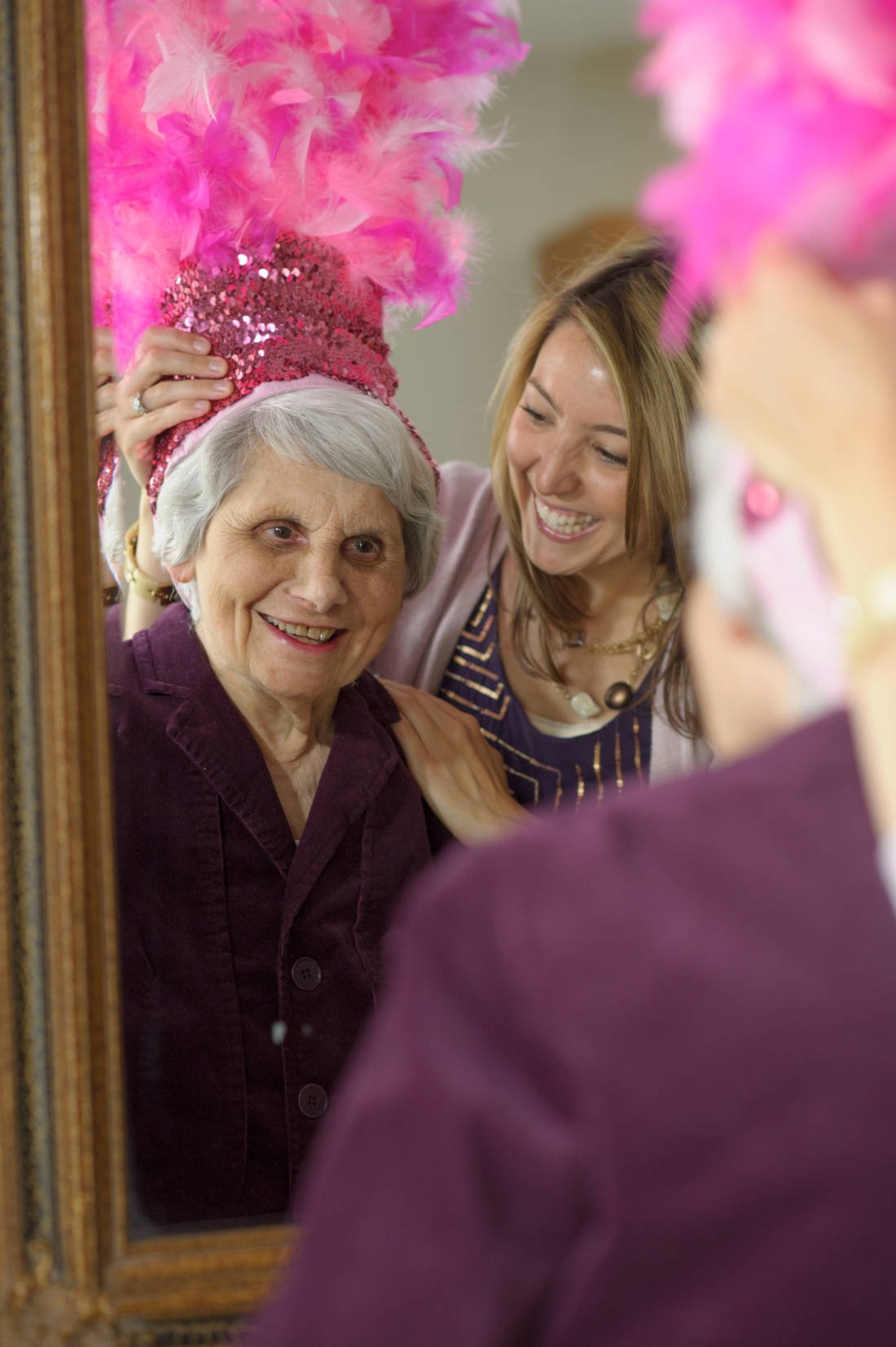What is Senior Caregiver Guilt, and What Can You Do to Cope?
Independent Senior Living | senior living nutrition | senior living homes | Aging & Caregiving | dependent senior living
When you’re caring for an aging loved one, it’s easy to get caught up in the self-defeating inner dialogue that’s tied to feelings of guilt.
I am not present enough.
I am too quick to get angry.
I am not doing a good job.
I am not meeting their needs.
I am not making them happy.
I am failing my family.
I am a bad person for not wanting this responsibility.
I don’t have the strength to do it all.
I am allowing my work to slip.
I am sacrificing my relationships with others.
Whatever your personal words of inadequacy may be, they can wreak havoc on your ability to care for the senior in your life and, more importantly, maintain your own mental health. And that simply doesn’t do anyone any good.
Understand, first and foremost, that these feelings are absolutely natural and extremely common. You are not alone, and you don’t have to continue beating yourself up over it. Senior caregiver guilt can certainly feel overwhelming, but there are ways you can cope with it and learn to let go of the emotional pain.
Physical and Mental Indicators of Caregiver Guilt
Maybe you’re highly aware of the guilt, or perhaps you don’t even realize it’s having such a negative effect on your life. Whatever the case may be, it’s important to tune into your feelings and recognize how the guilt associated with caring for an elderly parent or loved one is manifesting in your mind and body.
Some of the most common indicators include:
- Fatigue or exhaustion
- Insomnia
- Anger or frustration
- Depression
- Lethargy or lack of energy/interest
- Mental fog
If you find yourself experiencing one or more of these symptoms on a regular basis, caregiver guilt may be eating away at your physical and mental health. Awareness is just the first step. There’s more you can do to begin dealing with this reality and develop a healthier path forward.
Helpful Coping Mechanisms for Senior Caregiver Guilt
Some of the most effective approaches to overcoming the guilt that stems from caring for a sick or aging senior involves focusing on yourself. For many caregivers, putting their own needs first is a challenging task, but it’s essential to prioritize your own physical and mental health so that you can be the most effective caregiver for your loved one.
According to the Mayo Clinic, you can work on coping with caregiver guilt by addressing some of the following:
- Allow yourself forgiveness.
- Accept yourself and your limitations, and recognize that you simply can't do it all.
- Seek help from friends and family who offer it.
- Look into local resources, such as respite care.
- Join a support group for other caregivers in a situation similar to your own.
- Encourage positive thinking and be kind to yourself.
- Try to avoid your own inner thoughts that start with "I could" or "I should."
- Remind yourself that your most important job is to take good care of yourself and do your best to support and care for your loved one.
- Ensure that you’re getting consistent sleep, regular exercise and healthy nutrition.
- Try to live in the moment and seek peace within yourself.
Remember that you still deserve to enjoy life, laugh and have fun, so appreciate your own happiness when you're gifted with moments of joy.
Letting Go of Guilt with Senior Living Options
Again, it’s completely natural for you to feel guilty at times as you take on the significant challenges of a senior caregiving role. But in addition to the self-care that’s so important for coping, you also have other outlets to help you and your loved one. There’s no need to run yourself down trying to do everything.
Consider looking into some of the following options for senior living and support as you navigate the best decisions for you and the senior in your life.
- Adult Day Care: This is an option if you need a short-term break or a long-term solution during the day. These centers provide activities and daytime care without the overnight accommodations.
- Respite Care: Also known as a short-term stay program, this option is usually available within an assisted living community for a short time frame (one week to two month). Respite care could be a great option if you need a temporary break from caregiving. It may also be helpful in terms of offering your loved one a “getting acquainted” period to see what life in the assisted living community might be like on a more permanent basis. It is a great opportunity to test the waters without making a long-term commitment.
- Assisted Living: Assisted living communities offer ’round-the-clock care for seniors. Their medical, personal, household and transportation needs can all be met in a place where you trust the staff and feel comfortable with the arrangements. This is a long-term arrangement, often chosen by families and caregivers when it becomes apparent that it’s no longer safe or feasible for their loved one to remain at home.
- Rehab: A short- or long-term rehab stay is usually required if your loved one will be recovering from an injury, surgery or prolonged illness. Rehab centers offer more intensive medical intervention, including monitored nutrition, medication administration, physical therapy and personal care.
- Independent Living Communities: These living arrangements can either be apartment complexes, condominiums or free-standing homes and are usually fully equipped and easy to navigate. Some are extravagant, offering a wide range of social amenities and fine dining, while others provide just the basics. This option might be right for the senior in your life if they are fully independent (aside from a few minor medical needs), enjoy socializing and prefer having access to a wide variety of amenities (trash and snow removal, emergency call-for-aid systems, a-la-carte meals, wellness center, library, etc.) included in one monthly rent.
- Memory Support: Also known as dementia care or memory care, this special kind of community generally allows residents to live in private or semi-private apartments with structured activities delivered by trained personnel. The living environment has fully secured areas to prevent residents from wandering off.
All of these various options for care and support have different advantages. Carefully consider the needs of the senior in your life as well as those of you and your family. And remember to stay out of the guilt zone by practicing self-care and leveraging the coping tips provided here.
For even more information and insight on how to thrive as a caregiver, download your free copy of The Essential Caregiver's Guide.
About Marissa Salvesen
My journey into the world of senior living began when I started working for United Methodist Homes in 2010. Starting as an Activities Director at one of our-winning assisted and independent living communities and then transitioning to Marketing and Promotions Manager for UMH, I now work as the Manager of Mission Development, fostering the Mission and Values of our organization. I love sharing stories about the many ways we build meaningful relationships and enrich the lives of those we serve, and am proud to be part of building UMH’s 140-year legacy of caring. Wondering what makes our communities such special places to live and work? Connect with me and find out!

Our Blog is a 2016 Platinum Generations Award Winner! The Generations Award is an annual international competition for excellence in senior marketing recognizing professionals who have communicated to the 50+ Mature Markets.




